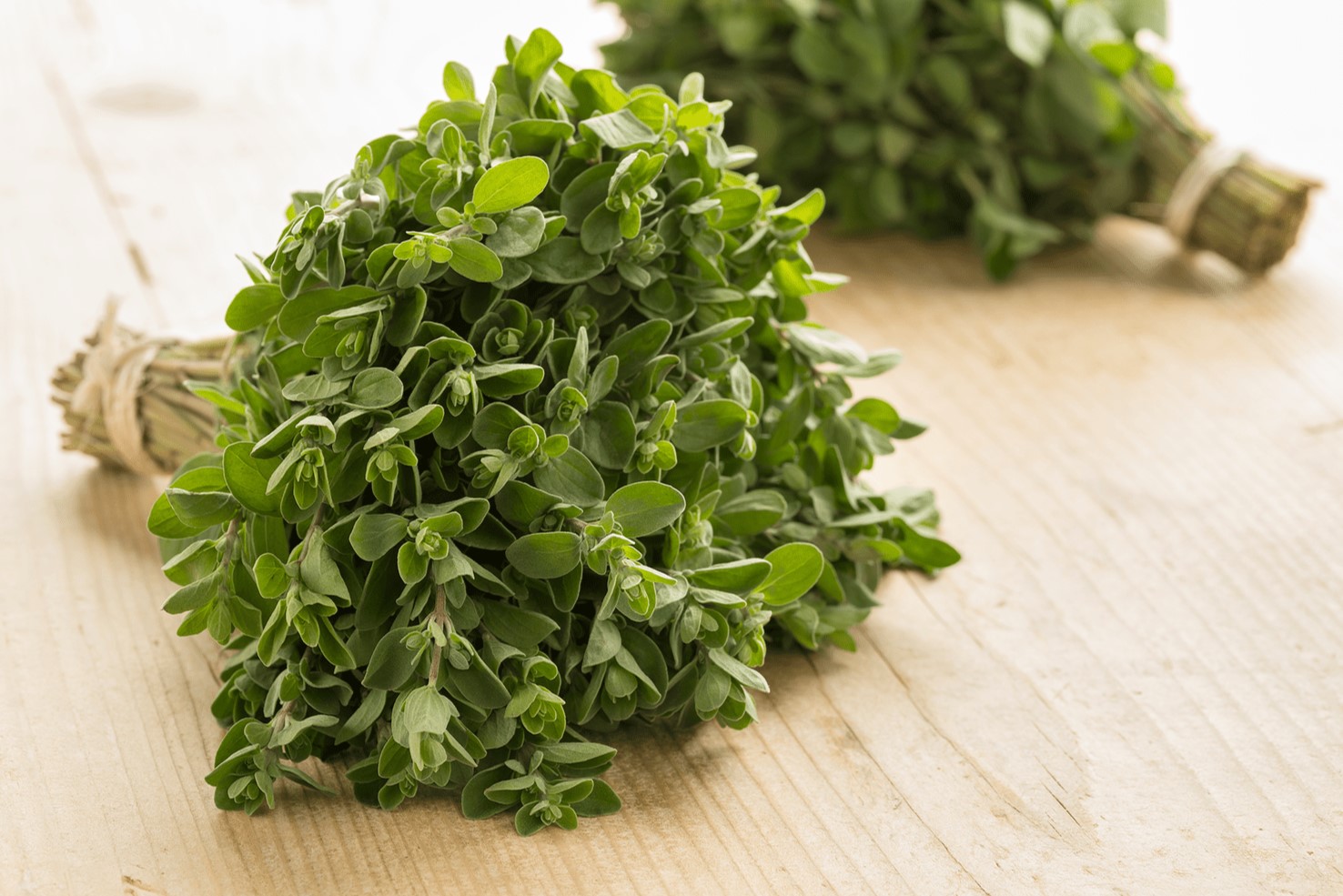
What is marjoram? Marjoram is a fragrant herb often used in cooking to add a sweet, citrusy flavor to dishes. This versatile plant belongs to the mint family and is closely related to oregano. Why should you care about marjoram? It's not just a tasty addition to your meals; marjoram also boasts numerous health benefits. It can aid digestion, reduce inflammation, and even help with respiratory issues. Where can you find marjoram? You can grow it in your garden or find it dried in the spice aisle of your local grocery store. How can you use marjoram? Sprinkle it on roasted vegetables, mix it into soups, or use it to season meats. Ready to learn more? Let's dive into 20 fascinating facts about marjoram!
Key Takeaways:
- Marjoram, a versatile herb with a sweet, citrusy flavor, offers health benefits like aiding digestion and reducing inflammation. It's easy to grow and has a rich historical significance, making it a valuable addition to any garden or kitchen.
- From ancient Greece to modern times, marjoram has been used in cooking, medicine, aromatherapy, and even as a cultural symbol of love and happiness. Its aromatic properties and soothing effects make it a must-have herb for both culinary and wellness purposes.
What is Marjoram?
Marjoram, a fragrant herb, often finds its way into various culinary dishes. Known for its sweet, citrusy flavor, it belongs to the mint family. Let's dive into some fascinating facts about this versatile herb.
-
Scientific Name: Marjoram's scientific name is Origanum majorana. It is closely related to oregano, another popular herb.
-
Origin: This herb originates from the Mediterranean region. Ancient civilizations like the Greeks and Romans highly valued it.
-
Culinary Uses: Marjoram is commonly used in soups, stews, dressings, and sauces. Its delicate flavor enhances many dishes without overpowering them.
-
Aromatic Properties: The herb is known for its aromatic properties. It has a sweet, floral scent with hints of citrus and pine.
Health Benefits of Marjoram
Marjoram isn't just a culinary delight; it also offers numerous health benefits. Here are some reasons why you might want to include it in your diet.
-
Digestive Aid: Marjoram can help improve digestion. It stimulates the production of digestive enzymes, making it easier to break down food.
-
Anti-inflammatory: This herb has anti-inflammatory properties. It can help reduce inflammation in the body, which is beneficial for conditions like arthritis.
-
Antioxidant Rich: Marjoram is packed with antioxidants. These compounds help protect your cells from damage caused by free radicals.
-
Antimicrobial: The herb has antimicrobial properties. It can help fight off harmful bacteria and fungi.
Growing Marjoram
Interested in growing your own marjoram? It's easier than you might think. Here are some tips to get you started.
-
Climate: Marjoram thrives in warm climates. It prefers full sun and well-drained soil.
-
Watering: This herb doesn't require much water. Overwatering can lead to root rot, so it's best to let the soil dry out between waterings.
-
Harvesting: You can start harvesting marjoram once the plant reaches about 4 inches in height. Regular harvesting encourages the plant to produce more leaves.
-
Companion Planting: Marjoram makes a great companion plant. It can help repel pests and attract beneficial insects to your garden.
Historical Significance of Marjoram
Marjoram has a rich history that dates back thousands of years. Let's explore its historical significance.
-
Ancient Greece: In ancient Greece, marjoram was a symbol of happiness. Newlyweds often wore crowns made of marjoram to ensure a happy marriage.
-
Roman Empire: The Romans used marjoram in their cooking and medicine. They believed it could cure various ailments, from digestive issues to snake bites.
-
Medieval Europe: During the Middle Ages, marjoram was used to mask unpleasant odors. It was also believed to ward off evil spirits.
Marjoram in Modern Times
Even today, marjoram continues to be a popular herb. Here are some modern uses and interesting facts.
-
Essential Oil: Marjoram essential oil is used in aromatherapy. It is believed to have calming effects and can help relieve stress and anxiety.
-
Cosmetics: The herb is used in various cosmetic products. Its soothing properties make it a popular ingredient in skincare items.
-
Culinary Trends: Marjoram is making a comeback in modern cuisine. Chefs are rediscovering its unique flavor and incorporating it into innovative dishes.
-
Herbal Medicine: Marjoram is still used in herbal medicine. It is believed to help with respiratory issues, menstrual cramps, and insomnia.
-
Cultural Symbolism: In some cultures, marjoram is still considered a symbol of love and happiness. It is often used in wedding ceremonies and other celebrations.
Marjoram's Hidden Wonders
Marjoram isn't just another herb in your spice rack. It's packed with health benefits, from boosting immunity to aiding digestion. This aromatic plant has a rich history, used by ancient Greeks and Romans for its medicinal properties. Its antioxidant and anti-inflammatory qualities make it a valuable addition to any diet. Plus, marjoram's versatility in the kitchen can't be overstated. Whether you're adding it to soups, stews, or salads, it enhances flavors and brings a touch of earthiness to dishes. Growing marjoram at home is also a breeze, making it accessible for anyone interested in herbal remedies or culinary adventures. So, next time you reach for a seasoning, consider marjoram. It's more than just a flavor enhancer; it's a powerhouse of wellness and taste.
Frequently Asked Questions
Was this page helpful?
Our commitment to delivering trustworthy and engaging content is at the heart of what we do. Each fact on our site is contributed by real users like you, bringing a wealth of diverse insights and information. To ensure the highest standards of accuracy and reliability, our dedicated editors meticulously review each submission. This process guarantees that the facts we share are not only fascinating but also credible. Trust in our commitment to quality and authenticity as you explore and learn with us.


